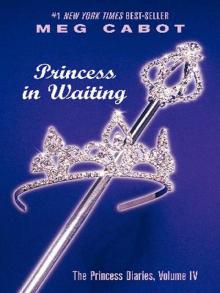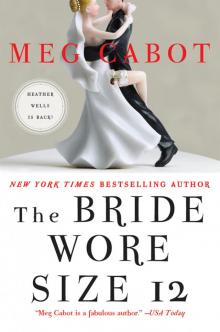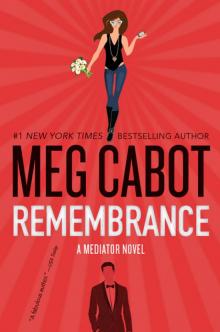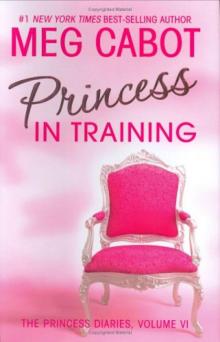The Bride Wore Size 12 Read online
Page 6
“Oh God. We’re never going to be able to get another appointment with her after canceling like this. You know how she is.”
It’s only because of a sudden cancellation (the bride left the groom for his brother) and Cooper’s father pulling a few strings to get us moved up the waiting list (apparently you can do this if you’re the CEO of a large recording company) that we managed to get a wedding booked at the Plaza at all. Perry, our wedding planner, can’t stop reminding us how fortunate we are, because it’s rare that any size wedding—let alone one as large as ours—is “thrown together at the last minute” in New York City like this. Apparently by “thrown together at the last minute” she means had tens of thousands of our own dollars—many of which are going to her—poured into it weeks in advance.
Sometimes I want to punch Perry in the throat.
“I think we have a fairly good excuse for canceling,” Cooper says soothingly. “So you let me handle Perry. You take care of the situation here.”
The weight of his strong hands on my shoulders—not to mention his deep voice—has a soothing effect, and for the first time since I entered the room to find Jasmine lying there—maybe for the first time since her resident’s mother Mrs. Harris took a seat next to my desk—I begin to feel calm.
I wrap my own arms around Cooper’s waist, comforted, as always, by his warmth, and the smell of the fabric softener we use, mixed with his own innate Cooperish scent.
“I’m sorry I snapped,” I say. “It seems horrible to say under these circumstances, but I was really looking forward to going over the seating arrangements with you.”
“Not horrible,” he says. “Human. And another one of the many reasons I love you.”
He kisses me, then, almost as abruptly as he appeared, he slips out the door to room 1416 and disappears down the back staircase, well before the elevator doors open and several uniformed officers from the Sixth Precinct show up, looking around questioningly.
“Down here,” I call, raising an arm.
It’s a good thing Cooper isn’t here, I think, or he’d comment on how the cops look as young as Jasmine.
At that very moment the door to room 1412 opens, and a pale brown, inquisitive face, framed by a mass of dark curling hair peers out, first at me, then at the approaching police officers.
“What’s going on?” the girl asks drowsily.
“Nothing,” I say, noting that the handmade tag on her door—in construction paper cut into the same cloud shapes as the ones on Jasmine’s ceiling—has the names Chantelle, Nishi, Kaileigh, and Ameera written on it in sparkly silver cursive. “Go back to bed.”
The girl doesn’t listen. Even washed free of makeup, her eyes are huge and dark and beautiful.
“Why are there police here?” she asks in a sleep-roughened voice. She has a British accent. “Has something happened?”
“Nothing for you to worry about, miss.” The first officer is a gangly young man, the leather of his gun belt creaking noisily as he strides toward us. “We got it under control. Go on back inside your room.”
It’s too late. By now the girl is standing in the middle of the hallway in her cream-colored slip and flowered silk dressing gown, her brown feet bare, her hair a riotous ebony halo around her slim shoulders. She wears no jewelry except for a single gold chain around her neck, from which dangles a pair of interlocked silver rings, which jingle softly when she walks.
I know that all the other residents of room 1412—
Chantelle, Nishi, and Kaileigh—are out to lunch at Nobu with Prince Rashid. This girl, then, must be Ameera, the one Kaileigh’s mother described as “a slut.”
I’m not sure what a slut is supposed to look like, but to me, Ameera looks more like an angel. I remember what Prince Rashid said, about Ameera being “amiable.” She seems like the kind of girl a prince—or any boy—would find amiable indeed.
Her gaze travels past me, into Jasmine’s room.
“That’s where my RA, Jasmine, lives,” she says, fully awake now. “Is she there? Jasmine?” Ameera darts toward the door I’ve foolishly left opened behind me. “Jasmine?”
I manage to catch her around the waist—she’s slim as a child, and doesn’t weigh much more than one. One of the female officers darts forward to help me, but Ameera is much stronger than she looks. She manages to drag both myself and the female officer a few steps into Jasmine’s room . . . enough so that she sees her RA’s dead body on the bed.
That’s when Ameera begins to scream.
It’s a long, long time before she stops.
7
Fischer Hall Casino Night
Do you like to GAMBLE?
$ Blackjack $ Roulette $ Texax Hold’Em $
Ready for a night of revelry
on a romantic riverboat ride
around manhattan Island?
Then Come to Fischer Hall’s Freshman
Orientation Casino Night!
Win chips that can be cashed in
for New York College loot!
$$$$
Buses leave outside the building
at 5:00 P.M. SHARP
Be there or be
LEFT OUT FOREVER
One thing I did not expect when I took on the job as assistant resident hall director of Fischer Hall was that I was going to get to know so many investigators from the NYC Office of the Chief Medical Examiner on a first-name basis.
But thanks to there having been so many sudden deaths in the building over the past year, that’s exactly what’s happened.
“Hi, Heather,” says Eva, the MLI (medicolegal investigator) who shows up to examine Jasmine. “How’s it going? Oh, hey, thanks for the wedding invitation. Is it all right if I bring my mother as my plus one? She’s so damned excited about going to a real celebrity wedding, and she’s never been to a wedding at the Plaza before. Plus, you know the chances of my ever getting married at this point are slim to none—Mom says I scare guys off with all these tattoos—so you’d be doing me a real solid.”
“Oh,” I say, surprised to hear this . . . not that Eva wants to bring her mother to my wedding, but because these are not exactly the first words I expect to hear someone say as they’re walking into the room of a deceased twenty-year-old. “Sure.”
Also, I don’t recall inviting Eva to my wedding.
But this isn’t the most pressing concern on my mind at the moment.
The Housing Office has kicked into crisis mode, sending all its best people over to Fischer Hall to “deal with” the situation, including the on-staff psychologist, Dr. Flynn, and grief counselor, Dr. Gillian Kilgore.
It’s Gillian who—along with a nurse from Student Health Services—gets Ameera calmed down. She turns out to be way beyond my help. Every time she looked at me—and the female police officer—after we removed her from Jasmine’s room, all she seemed to able to see was the face of her dead RA.
That made her start weeping again, burying her head in her hands so that her long dark hair fell over her face.
It took two young male police officers to drag Ameera out of room 1416 and back into her own room. Afterward, they sat her down and explained that we’d found Jasmine that way—none of us had done it to her.
I don’t think she believed us, though.
“But she was fine at the party last night,” Ameera kept saying through her tears. Because of her English accent, she pronounced it pahty. “She was fine!”
“What party?” I asked, bewildered.
This only set Ameera off into a fresh fit of hysterics, for some reason.
So I’d gone back into Jasmine’s room, reflecting that I’d made a new discovery:
It’s sometimes preferable to sit with the corpse of a student than to be in the company of a live one.
Maybe Lisa’s right: this job has hardened me. What a depressing thought for a girl who’s supposed to be getting married in a month.
I tried not to dwell on this, however.
Death certificates can’t be issue
d for anyone who dies suddenly (and unattended by a physician) in New York State unless that body has first been seen by an MLI (then brought to the Office of the Chief Medical Examiner—OCME).
Due to budget cuts, however, there are only a few MLIs assigned to each borough, so depending on how many deaths occur in the city on a given day, it can take anywhere from forty-five minutes to eight hours (sometimes more) for an investigator to show up after a death has been reported.
It took almost four hours for an MLI to show up to examine Jasmine.
Normally this would have meant my spending the afternoon hanging around with a bunch of yawning cops and uptight administrators.
But that’s not how things turned out this time. Because this time, Fischer Hall is housing a VIR, and the deceased lived one floor below him. And one of the first phone calls Dr. Jessup makes after learning about Jasmine’s death appears to have been to Prince Rashid’s special protection team, and they, in turn, have taken over the investigation.
“ID, please.” Special Agent Richard Lancaster, who looks devastatingly handsome in his dark suit and tie (not that I’ve noticed, since I’m a happily engaged woman), steps in front of the door to Jasmine’s room and holds out an intimidatingly large hand.
At least, it intimidates me. Medicolegal Investigator Eva Kovalenko, not so much. She looks as offended as if the agent asked to see something much more intimate than a mere ID.
“Who the hell are you,” Eva demands, “and what are you doing at my crime scene?”
“Potential crime scene,” Special Agent Lancaster corrects her.
“Who asked you?” Eva looks even more offended.
I don’t blame Special Agent Lancaster for not realizing who Eva is. With her spiky bleached-blond hair, eyebrow rings, and yellow-rose-of-Texas neck tattoo (the only tattoo that peeks out from beneath her clothes, as she’s wearing a long-sleeved coroner’s jacket. I’ve seen her in short sleeves, and know she has plenty more), Eva looks more like a student than an employee of the OCME.
Still, her attitude isn’t helping much.
“Uh, Eva,” I say. “This is Special Agent Lancaster. He works for the State Department—”
“Bureau of Diplomatic Security,” the agent elaborates woodenly. “It’s the security and law enforcement arm of the U.S. State Department.”
“Who the hell died?” Eva demands. “The shah of Iran?”
“Uh, no,” I say. “It’s a student.”
“The kid of the shah of Iran?”
“Ma’am,” Special Agent Lancaster says in a slow, impassive tone to Eva, “I’m going to need your full name and also the name of your supervisor—”
“My supervisor is the chief medical examiner,” Eva says, whipping a business card out from the pocket of her coat before jostling Special Agent Lancaster aside (and nearly running over his size-twelve feet with her wheelie bag). “Now get the hell out of my way so I can do my job.”
Special Agent Lancaster looks a little startled. He’d had no trouble at all running off the cops from the Sixth Precinct (although they were still in the building. They’d merely retreated downstairs to the dining hall to drink coffee, which Magda, the cafeteria’s extremely popular head cashier and one of my best friends, had been only too delighted to offer to them for free), not to mention everyone who’d shown up from the Housing Office, who were now gathered downstairs in the second-floor library, holding their crisis resolution meeting, which I had to admit I was a little relieved not to be attending.
But the agent was going to have his hands full with Eva, and I could tell he knew it. I saw him touch the wireless communication piece in his ear, then begin speaking softly to someone, most likely in the bureau’s makeshift headquarters in the first-floor conference room. He was probably calling for reinforcements.
“So, um, this is the deceased,” I say to Eva, stepping past the special agent and into room 1416, then pointing Eva in the direction of Jasmine’s body, though of course she’d have had a hard time missing it. It was the only corpse in the immediate vicinity.
“Her name is Jasmine Albright,” I say to Eva. “She’s twenty, a junior. Sarah, our grad assistant, said she had dinner with Jasmine last night—they both had falafel—and Jasmine was fine. Then we tried to reach her this morning and she didn’t pick up. That’s all I know.”
I don’t mention the thing Ameera had said, about Jasmine having been at a pahty the night before. None of us—at least those of us who’d been there at the time—had been able to get another word out of her about it. Hopefully Drs. Flynn or Kilgore had better luck, but so far I haven’t heard anything.
Eva mutters a curse word as she looks Jasmine over while simultaneously taking a pair of latex gloves from the kit she carries with her—literally a wheelie bag filled with tools used for collecting postmortem evidence.
“Sorry about this, Heather,” Eva says sympathetically. “I couldn’t believe it when I got the address. I was like, Noooo. Not Death Dorm again!”
“Thanks,” I say. I’m as used to Eva’s quirks as I am to her spiked blond hair and tattoos. Contrary to popular belief, medical examiners are usually quite cheerful, though not surprisingly a bit prone to gallows humor, since they spend the majority of their time around dead people.
“What’s up with the suit, though?” Eva asks, flashing a look of annoyance at Special Agent Lancaster. “This girl have rich parents or something?”
“Not that I know of,” I say. “He’s here because we have a Very Important Resident who lives—”
“Ms. Wells,” Special Agent Lancaster snaps, pausing his phone conversation. “The reason for my presence here is on a need-to-know basis, and Ms. Kovalenko does not need to. It has nothing to do with this girl’s unfortunate death.”
Eva looks at me questioningly. I shrug. “As far as I know,” I say, “it doesn’t.”
“Well,” she says, her lips forming a hard line. “Ramon and I will be the judge of that, won’t we . . . if he ever finds a place to park the van. What’s going on out there in front of the building, anyway?”
“What do you mean?”
“There are all these buses parked outside, and kids getting onto them.”
Suddenly I remember.
“Oh God.” I put a hand to my mouth. “Casino Night.” I’d totally forgotten.
“What night?” Eva asks.
“Casino Night.” I shake my head. “It’s part of orientation week for the new students. All the kids are being taken on a harbor cruise around Manhattan for mocktails and gambling. Not real gambling, of course, there’s no cash involved, they win prizes like New York College sweatshirts and other swag.”
Eva shakes her head. “Things have certainly changed from when I went to college. We thought it was cool when they gave us free hot dogs to grill over a hibachi in the quad. Now you people take them on cruises around Manhattan.”
“Well,” I say. “Hibachis aren’t allowed anymore, because they’re considered a fire hazard.”
Eva rolls her eyes. “Of course. We wouldn’t want any of them learning a skill that might actually come in handy someday, such as barbecuing, would we?” She throws Special Agent Lancaster a narrow-eyed glance. “When my boy Ramon gets here you’ll let him through, right, 007? Or are you going to shoot him?”
Special Agent Lancaster eyes her. Is it my imagination, or is he smiling a little? If so, it would be a first.
“That depends,” he says drily. “Your boy Ramon have ID?”
“No,” Eva replies sarcastically. “He likes to roam around the city with body bags and a gurney for fun.”
I’ve sunk down onto the bed opposite Jasmine’s body, feeling a little queasy, and hope it’s because of the situation—or the tuna salad sandwich I hastily grabbed for lunch from the dining hall—and not because I’ve picked up Lisa’s flu. It’s close to five o’clock, and all I want to do is go home, crawl into bed, and stay there, preferably with my dog, Cooper, some popcorn, the remote, and a large alcoholic beverage
. Maybe not in that order.
“Looks like you lucked out this time.” Eva’s conversational tone rouses me from my fantasy of a vodka-and-cheese-popcorn-soaked Say Yes to the Dress marathon. “No blood spatter or body fluids for your housekeeping crew to have to clean up. God, we couldn’t believe how many messy ones you guys had last year. Those girls in the elevator shafts? Oh, and the head in the pot in the cafeteria? Man, that one took the prize.”
“I’d have preferred not to be eligible for that contest, especially not this year,” I say weakly. “It’s freshman orientation week right now.”
“I see what you mean.” Eva is raising the dead girl’s eyelids to examine her pupils. “It’s kind of early to say what the cause of death is without tox screens, but I don’t see any sign of trauma. You find any prescription pill bottles lying around?”
I’m not surprised by the question. Prescription drug overdose, we were told at an incredibly boring drug-and-alcohol-awareness training session over the summer, is one of the leading causes of death for young adults (after accidents). Someone dies of a prescription pill overdose every nineteen minutes in this country.
“No.” Surprisingly, it’s Special Agent Lancaster who replies. “There’s a bottle of Tylenol in her medicine cabinet.” He nods toward 1416’s bathroom. Unlike many residence halls, all rooms in Fischer Hall have private baths. The building once housed floor-through apartments for some of Manhattan’s wealthiest socialites. Few of the architectural details of those days remain (except in the lobby and cafeteria, which used to be a ballroom), but residents don’t have to go down the hallway to shower. “But it still has the protective seal on it.”
Eva nods as if this is what she expects to hear. She’s feeling the victim’s jaw. “She’s been dead at least twelve hours. Probably passed away last night sometime around . . . I’m going to say three in the morning. She have any preexisting conditions that you knew of?”
“Asthma, according to her student file.” I’d grabbed it on my way upstairs, then skimmed it during the elevator ride to the fourteenth floor.

 Bridal Boot Camp
Bridal Boot Camp Party Princess
Party Princess Princess in Waiting
Princess in Waiting Being Nikki
Being Nikki Abandon
Abandon Princess on the Brink
Princess on the Brink Darkest Hour
Darkest Hour Reunion
Reunion Princess in Pink
Princess in Pink Sweet Sixteen Princess
Sweet Sixteen Princess The Princess Diaries
The Princess Diaries Airhead
Airhead Princess in the Spotlight
Princess in the Spotlight No Judgments
No Judgments All-American Girl
All-American Girl Princess in Love
Princess in Love Forever Princess
Forever Princess Haunted
Haunted Shadowland
Shadowland Twilight
Twilight Princess Mia
Princess Mia Proposal
Proposal Remembrance
Remembrance Ransom My Heart
Ransom My Heart Underworld
Underworld Shadowland tm-1
Shadowland tm-1 Size 14 Is Not Fat Either
Size 14 Is Not Fat Either Darkest Hour tm-4
Darkest Hour tm-4 Airhead a-1
Airhead a-1 Royal Crush
Royal Crush The Princess Present (princess diaries)
The Princess Present (princess diaries) Royal Crown
Royal Crown Royal Wedding: A Princess Diaries Novel (The Princess Diaries Book 11)
Royal Wedding: A Princess Diaries Novel (The Princess Diaries Book 11) Princess Diaries, Vol. X: Forever Princess
Princess Diaries, Vol. X: Forever Princess Royal Wedding Disaster
Royal Wedding Disaster Allie Finkle's Rules for Girls: Glitter Girls and the Great Fake Out
Allie Finkle's Rules for Girls: Glitter Girls and the Great Fake Out Size 12 Is Not Fat hwm-1
Size 12 Is Not Fat hwm-1 Princess on the Brink pd-8
Princess on the Brink pd-8 The New Girl
The New Girl Allie Finkle's Rules for Girls: Moving Day
Allie Finkle's Rules for Girls: Moving Day Code Name Cassandra
Code Name Cassandra Mia Goes Fourth pd-4
Mia Goes Fourth pd-4 Sanctuary 1-4
Sanctuary 1-4 Missing You 1-5
Missing You 1-5 The Mediator 6: Twilight
The Mediator 6: Twilight Allie Finkle's Rules for Girls: Best Friends and Drama Queens
Allie Finkle's Rules for Girls: Best Friends and Drama Queens The Boy Next Door
The Boy Next Door Every Boy's Got One
Every Boy's Got One Princess Mia pd-9
Princess Mia pd-9 Haunted tm-5
Haunted tm-5 Overbite
Overbite Princess Lessons
Princess Lessons She Went All the Way
She Went All the Way Give Me Five pd-5
Give Me Five pd-5 Twilight tm-6
Twilight tm-6 Jinx
Jinx Runaway (Airhead #3)
Runaway (Airhead #3) Queen of Babble Gets Hitched qob-3
Queen of Babble Gets Hitched qob-3 Forever Princess pd-10
Forever Princess pd-10 Queen of Babble
Queen of Babble Boy Meets Girl b-3
Boy Meets Girl b-3 Pants on Fire
Pants on Fire Big Boned ху-3
Big Boned ху-3 Princess' Diaries pd-1
Princess' Diaries pd-1 Size 14 Is Not Fat Either hwm-2
Size 14 Is Not Fat Either hwm-2 Awaken a-3
Awaken a-3 Queen Of Babble: In The Big City qob-2
Queen Of Babble: In The Big City qob-2 Nicola and the Viscount
Nicola and the Viscount Allie Finkle's Rules for Girls: Stage Fright
Allie Finkle's Rules for Girls: Stage Fright Size 12 and Ready to Rock
Size 12 and Ready to Rock Perfect Princess
Perfect Princess The Bride Wore Size 12
The Bride Wore Size 12 1-800-Where-R-You: Missing You
1-800-Where-R-You: Missing You How to Be Popular
How to Be Popular Queen of Babble Bundle with Bonus Material
Queen of Babble Bundle with Bonus Material Allie Finkle's Rules for Girls: Blast from the Past
Allie Finkle's Rules for Girls: Blast from the Past Princess in the Spotlight pd-2
Princess in the Spotlight pd-2 Ready or Not
Ready or Not The Princess Diaries I
The Princess Diaries I Party Princess pd-7
Party Princess pd-7 Third Time Lucky pd-3
Third Time Lucky pd-3 Stage Fright
Stage Fright From the Notebooks of a Middle School Princess
From the Notebooks of a Middle School Princess Notebooks of a Middle-School Princess Bridesmaid-in-Training
Notebooks of a Middle-School Princess Bridesmaid-in-Training Boy Meets Girl
Boy Meets Girl Missing You
Missing You The Twilight
The Twilight Size 12 Is Not Fat
Size 12 Is Not Fat Code Name Cassandra 1-2
Code Name Cassandra 1-2 Valentine Princess
Valentine Princess Project Princess
Project Princess Reunion tm-3
Reunion tm-3 Remembrance: A Mediator Novel
Remembrance: A Mediator Novel When Lightning Strikes 1-1
When Lightning Strikes 1-1 Safe House 1-3
Safe House 1-3 Teen Idol
Teen Idol Queen of Babble Gets Hitched
Queen of Babble Gets Hitched Glitter Girls and the Great Fake Out
Glitter Girls and the Great Fake Out Moving Day
Moving Day Insatiable
Insatiable All American Girl
All American Girl The Boy Is Back + Every Boy's Got One Bundle
The Boy Is Back + Every Boy's Got One Bundle Big Boned
Big Boned Awaken
Awaken Princess in Training pd-6
Princess in Training pd-6